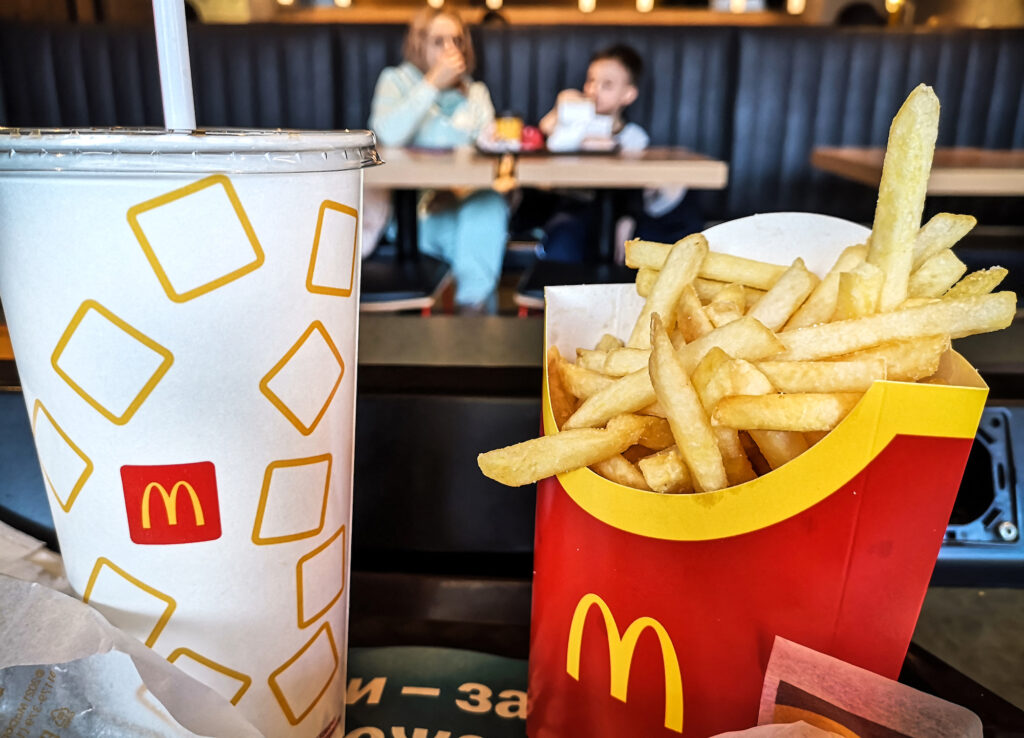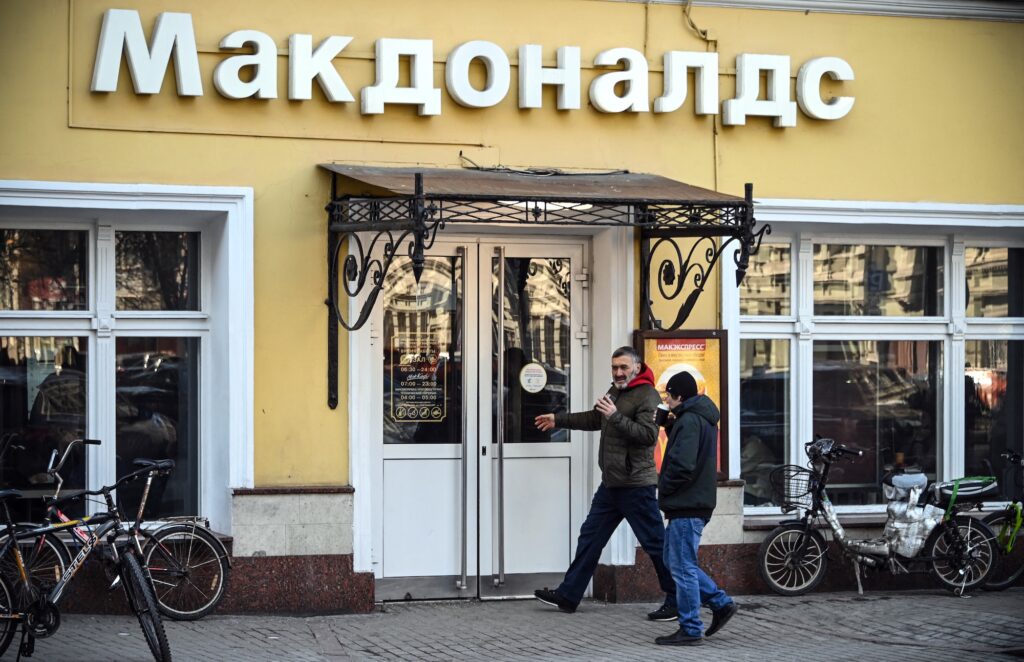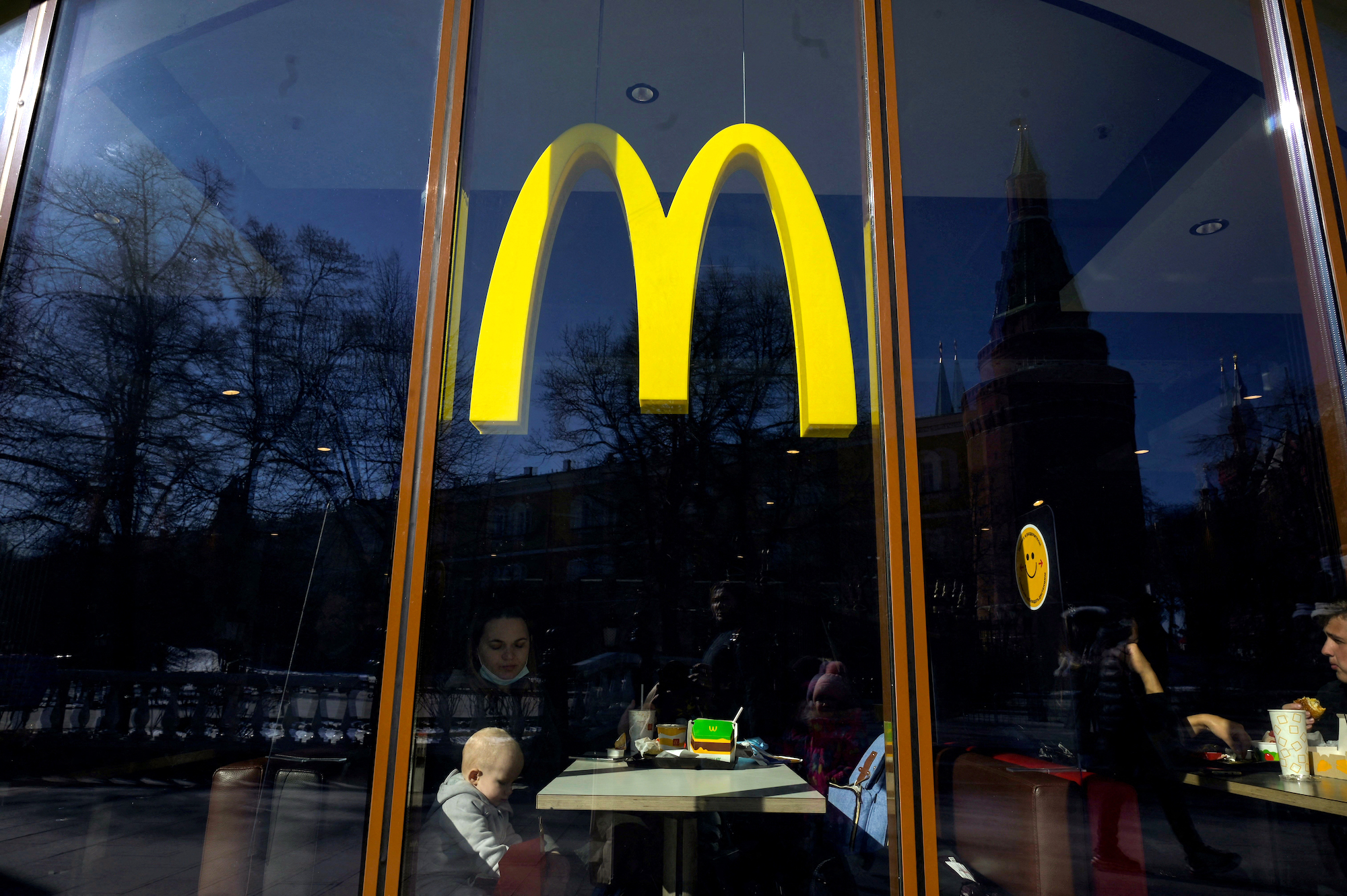When the Soviet Union’s first McDonald’s opened on Jan. 31, 1990, it drew huge crowds and became a powerful symbol of an isolated country opening up to the West.
This week McDonald’s, Coca-Cola, and Starbucks suspended operations in Russia, joining the international corporate chorus of outrage over President Vladimir Putin’s decision to send troops to Ukraine.
And while many Muscovites said on Wednesday they would sorely miss the symbols of American cultural influence in the world, others said “good riddance”, stressing that protecting Russian speakers in eastern Ukraine was more important than fast food.
‘Donbas is worth a McDonald’s’
“Let them close it,” said 42-year-old Nikolai Ivanov, who left McDonald’s flagship restaurant on Pushkinskaya Square in central Moscow with a burger in hand.
Like many others, he backed the Kremlin’s narrative that Moscow needed to protect Russian-speaking residents of eastern Ukraine and “de- militarize” and “denazify” Kyiv authorities.
“The Donbas is worth a McDonald’s,” said Ivanov, squinting at the winter sun.
“Let them close it,” said 42-year-old Nikolai Ivanov, who left McDonald’s flagship restaurant on Pushkinskaya Square in central Moscow with a burger in hand.
Transport student Stanislav Logvinov echoed this sentiment, also backing Putin. “Saved lives are far more important than good food,” he said, adding that he wanted to join the army.
Vasily Ivanov, a 40-year-old former serviceman, said NATO was “encircling Russia from all sides” and that he “respected Putin” for his choices. “Close whatever you want, it will just strengthen Russian businesses,” he said.
Ilya Borodinov was equally unsentimental. “Good riddance,” said the 34-year-old who often brought his young daughter to the restaurant. “We cannot force them to stay.”
‘Tragedy’
But others said they were sorry to see the American corporation go.
Elena Sidorova, an 18-year-old ballet student, follows a strict diet but said she enjoyed indulging in the occasional “delicious filth” at McDonald’s.
“Many people come here and many will miss it,” she said.

Sidorova she said she hoped the closure was only a “temporary measure” and blamed the West for its sanctions policies on Russia.
“It’s not Russia doing this. Everything is coming from the West,” she added.
Her friend and fellow ballet student Marina Podyapolskaya called the exit of the American company—which counts 850 restaurants in Russia—”sad news.”
“I am happy every time I come here,” she added.
McDonald’s was a favorite meet-up spot for university student Stepan Gruntov who said he found the closure upsetting and did not understand why the company had to suspend its operations. “It is of course a tragedy,” he said.
McDonald’s was a favorite meet-up spot for university student Stepan Gruntov who said he found the closure upsetting and did not understand why the company had to suspend its operations. “It is of course a tragedy,” he said.
‘Strange decision’
Many customers at a Starbucks coffeehouse near the Kremlin also said they would miss the Seattle-based chain, which is suspending operations at its 130 outlets in the country.
“I like this café, even though it’s expensive,” said 42-year-old Svetlana Isayeva, who often has breakfast at Starbucks. “The coffee is nice and it reminds me of my time working in the US in the early 2000s.”

“It’s sad that this is happening in our country. But it’s not a problem, we will find an alternative with another café,” she added.
At a table nearby, 23-year-old Alyona, who refused to give her last name, is working on her computer. She moved to Moscow from eastern Ukraine 18 months ago. The young woman, who is critical of Putin, said the chain’s decision to suspend operations was a blow to pro-Western Russians. “It is a strange decision,” she added.
“All those around me condemn (Putin),” she said, adding that pro-Kremlin Russians “do not come here and will not suffer.”
© Agence France-Presse





